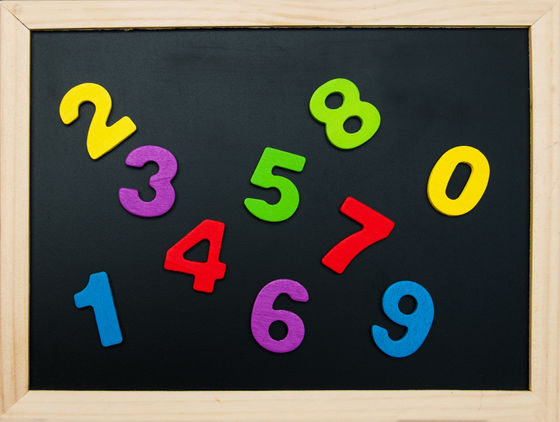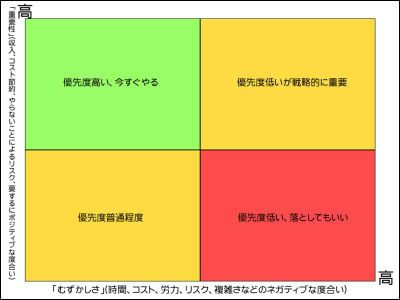A calculation method for determining the order in which tasks should be prioritized

Prioritizing tasks is essential in working with limited time and resources in a workplace where there is plenty of work to be found. Jimmy John, an engineer and entrepreneur, has released a method for calculating and deciding such priorities in a simple three-step process.
How To Prioritize Tasks? @jimmyislive
◆1: What are the merits of the task?
The first step in the three-step process is to give a positive score by thinking about how the customer or product would benefit from doing the task. For example, this could be a highly requested feature addition, something that would provide a competitive advantage, something that would reduce costs, or something that would shorten delivery time.
It is difficult to quantify the merit, that is, how many points to give a specific score, but we will use the following three algebras to determine the score.
・Immediate benefits: x
・Short-term benefits: y
・Long-term benefits: z
Give a higher positive score for immediate benefits and a lower score for long-term benefits.

◆ 2: What disadvantages will occur if you do not do the task?
Now evaluate the impact of not prioritizing that task in reverse, with negative points. Specifically, there are things that require more effort if you don't do them, and things that affect productivity.
Like merits, demerits are also scored from the following three perspectives.
・Immediate impact: -a
・Short-term impact: -b
・Long-term impact: -c
If the effect is immediate, give it a lower negative score. On the other hand, we give a high negative score for the long term.

◆3: What is the cost required to perform the task?
Resources are always finite, so when prioritizing tasks, it's important to consider the effort required for the task. The relationship between high cost and score is as follows.
・High: p
・Medium: q
・Low: r
Once you have your scores up to this point, plug them into the formula '(x|y|z) - (a|b|c) + (p|q|r)'. And the task whose result is close to 0 should be given a high priority and should be started immediately.
Related Posts:
in Note, Posted by log1l_ks






